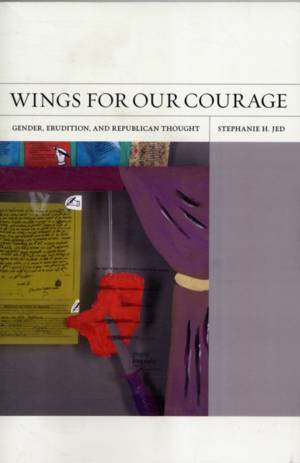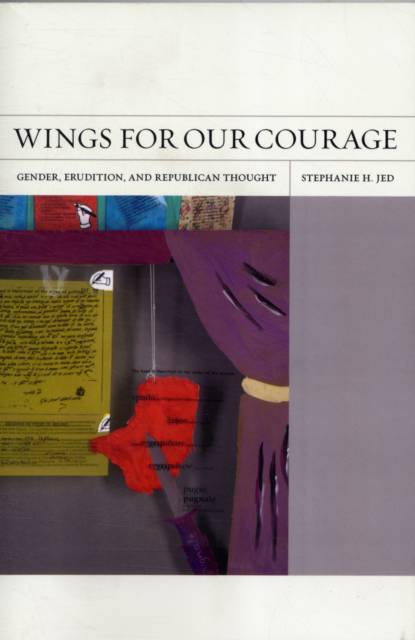
- Afhalen na 1 uur in een winkel met voorraad
- Gratis thuislevering in België vanaf € 30
- Ruim aanbod met 7 miljoen producten
- Afhalen na 1 uur in een winkel met voorraad
- Gratis thuislevering in België vanaf € 30
- Ruim aanbod met 7 miljoen producten
Zoeken
€ 62,95
+ 125 punten
Omschrijving
On January 6, 1537, Lorenzino de' Medici murdered Alessandro de' Medici, the duke of Florence. This episode is significant in literature and drama, in Florentine history, and in the history of republican thought, because Lorenzino, a classical scholar, fashioned himself after Brutus as a republican tyrant-slayer. Wings for Our Courage offers an epistemological critique of this republican politics, its invisible oppressions, and its power by reorganizing the meaning of Lorenzino's assassination around issues of gender, the body, and political subjectivity. Stephanie H. Jed brings into brilliant conversation figures including the Venetian nun and political theorist Archangela Tarabotti, the French feminist writer Hortense Allart, and others in a study that closely examines the material bases--manuscripts, letters, books, archives, and bodies--of writing as generators of social relations that organize and conserve knowledge in particular political arrangements. In her highly original study Jed reorganizes republicanism in history, providing a new theoretical framework for understanding the work of the scholar and the social structures of archives, libraries, and erudition in which she is inscribed.
Specificaties
Betrokkenen
- Auteur(s):
- Uitgeverij:
Inhoud
- Aantal bladzijden:
- 298
- Taal:
- Engels
- Reeks:
- Reeksnummer:
- nr. 6
Eigenschappen
- Productcode (EAN):
- 9780520267695
- Verschijningsdatum:
- 14/07/2011
- Uitvoering:
- Paperback
- Formaat:
- Trade paperback (VS)
- Afmetingen:
- 150 mm x 226 mm
- Gewicht:
- 408 g

Alleen bij Standaard Boekhandel
+ 125 punten op je klantenkaart van Standaard Boekhandel
Beoordelingen
We publiceren alleen reviews die voldoen aan de voorwaarden voor reviews. Bekijk onze voorwaarden voor reviews.








